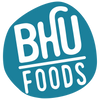
The Best Plant Based Foods High in Vitamin D to Boost the Immune System
Vitamin D can be difficult to find in the diet, especially for those who follow a plant based or vegan diet, since vitamin D tends to be more prevalent in animal protein, such as eggs and fish. And although sunlight provides vitamin D and nourishes the skin, it’s not as readily available year round, especially during the wintertime and those cooler months.
Supplementation can be helpful, since it’s an easy way to make sure you’re meeting your daily vitamin D requirements—particularly for those who follow a meatless diet and plant based lifestyle, as they might be at higher risk of developing a vitamin D deficiency due to the limitation in food sources. (Just make sure you get your doctor’s approval first.)
Vitamin D is super important for improving your mental health, including your mood and wellbeing, as well as brain health and cognitive function, bone health, circulation and cardiovascular health, and lastly, immunity. Plus, a strong immune system prevents illness, from the common cold to other bacterial infections, and lowers the risk of various diseases, so you’ll have fewer “sick days” at home and better health and longevity as you age.
If you’re on a vegan or plant based diet—or if you’re simply trying to cut back on meat and increase your intake of plant foods instead—these are the best sources of vitamin D to include in your diet to boost your immune system and better protect your heart, brain and overall health and recovery too.
Fortified Soy Milk
If you can’t consume dairy—or if you’re like me and just prefer the taste of soy milk to regular cow’s milk—you’ll get a rich dose of vitamin D in just one cup of fortified soy milk containing the immune-boosting vitamin. Check labels at the store to make sure you’re buying a brand of soy milk that lists vitamin D on the label and in a high serving, since fortified soy milk with vitamin D can contain around 2.9 mcg (116 IU) in a one cup serving.
Not only can you drink soy milk plain for an immunity, protein and bone-building boost, but also you can use it in unsweetened coffee drinks and lattes, in smoothies and post-workout recovery shakes and even for breakfast to add moisture to a bowl of high protein granola, such as one that’s lower in sugar and carbs to prevent blood sugar spikes and a subsequent crash later.
Fortified Almond Milk
While you won’t get as much protein in a serving of almond milk as you would with soy, almond milk has a nice, mild flavor and it happens to be lower in calories as well as higher in heart-healthy fats, in comparison to soy milk. Stick with an unsweetened almond milk to keep sugar low, especially if you are watching sugar and carbohydrate intake or blood sugar.
Fortified almond milk also offers a pretty rich dose of vitamin D as a plant source, and it’s comparable to soy milk, although slightly lower—one serving of almond milk provides about 2.4 mcg (96 IU) of vitamin D to aid in greater immune system support. What’s more, you can often find fortified levels of calcium too, as long as you check the labels before purchasing at the store.
Mushrooms
While mushrooms contain a plant form of vitamin D (vitamin D-2), which may not be as readily accessible and absorbable as vitamin D found in animal products, in the form of D-3, you can still increase your vitamin D intake by enjoying mushrooms in the diet.
When mushrooms are exposed to ultraviolet light, they develop D-2, which the body can then use. Mushrooms grown in the dark won’t be too abundant in the vitamin, unfortunately. And when grown with UV exposure, mushrooms can have around 450 IU in a 100 gram serving. You might want to still supplement to get that vitamin D-3, though, so check with your doctor if you’re concerned about a vitamin D deficiency.
Fortified Orange Juice
Orange juice is often fortified with vitamins, like vitamin D, so a glass of OJ in the morning is an easy way to increase intake bright and early, and on plant foods alone. However, orange juice can also be high in sugar and carbohydrates, which isn’t ideal for those who follow a low carb or keto diet or who must monitor blood sugar, as is the case with diabetics and prediabetics, as well as those with a genetic predisposition for developing diabetes in time.
Whether or not the OJ is fortified with vitamin D will be clear on the label, and some brands can have up to 2.5 mcg (or 100 IU) in a single serving. Plus, oranges also have vitamin C, which is another immunity-booster nutrient that’s critical for your health and wellbeing and is abundant in oranges and other kinds of citrus, like lemons and grapefruit.
Fortified Breakfast Cereals and Grains
If you can find breakfast cereals that are fortified with vitamin D, you can expect between 0.2 to 2.5 mcg (which is equivalent to 8 to 100 IU) in one serving. Read the labels on products before loading your shopping cart to make sure there’s a rich supply of fortified vitamins and minerals, and better yet, a hearty dose of protein, fiber and clean fats too. That way, you’ll stay fuller for longer and get more nutritional bang for your buck, all around.











